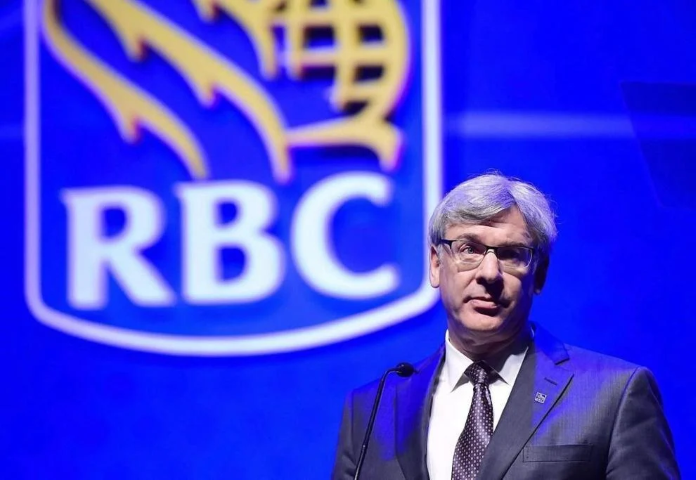
RBC says it plans to disclose a key climate metric that the New York City Comptroller has been pushing it to adopt. THE CANADIAN PRESS/Frank Gunn
Royal Bank of Canada (RBC) has cemented its position as the largest company in Canada following the successful completion of its acquisition of HSBC Canada. This acquisition has further solidified RBC's dominance in the Canadian banking sector, making it a prime target for scrutiny and criticism.
With a market value of approximately $193 billion, RBC now stands significantly ahead of its closest competitor, TD Bank, by nearly $50 billion. This remarkable growth in RBC's market value is attributed to a notable 24% increase in its stock price over the two months leading up to the federal government's approval of the HSBC Canada deal just before the holiday season.
The transition of the takeover, particularly the relocation of 780,000 HSBC customers and 4,500 employees to RBC's systems, along with the transformation of about 100 branches to RBC's branding, was described by RBC's Chief Executive, Dave McKay, as "near-flawless." McKay credited extensive planning and meticulous rehearsals for the seamless transition, emphasizing the importance of the 18-month period between the agreement on the $13.5 billion deal and its finalization.
Looking ahead, McKay expressed excitement about the future prospects of the bank, particularly in terms of its ability to connect Canadian businesses and consumers globally. Despite criticism surrounding the acquisition, McKay argued that the consolidation of RBC and HSBC Canada would benefit the economy, emphasizing the importance of scale in enhancing productivity and facilitating global business connections.
However, RBC's expanded size has also drawn intensified scrutiny, particularly regarding its environmental record. The bank has been under fire for its substantial financing of fossil fuel projects, leading to grassroots campaigns and pressure from international asset managers. Notably, the Rainforest Action Network highlighted RBC's significant funding of oil and gas projects, ranking it as one of the world's top financiers in this sector.
This scrutiny prompted calls for RBC to disclose its clean energy financing ratio in comparison to its funding for fossil fuels. While initially rejecting this proposal, RBC eventually committed to disclosing this metric in its 2024 climate report, following similar actions by other major banks.
The decision to disclose this information was welcomed by stakeholders, although some critics argued that RBC's efforts to transition towards clean energy financing were insufficient, given its global influence and scale. Despite these criticisms, McKay defended RBC's actions, highlighting the bank's leadership and its commitment to facilitating the transition to renewable energy.
Moving forward, McKay emphasized RBC's role in driving renewable energy investments and other climate initiatives, leveraging its extensive network and resources. Despite the challenges ahead, McKay remained optimistic about RBC's growth prospects and its ability to navigate the complexities of the financial landscape.
As RBC continues to navigate its integration with HSBC Canada and expands its operations, McKay's leadership will be crucial in steering the bank towards sustainable growth and addressing the evolving needs of its stakeholders. Overall, despite facing criticism and challenges, RBC remains poised for continued success in the Canadian banking sector.















